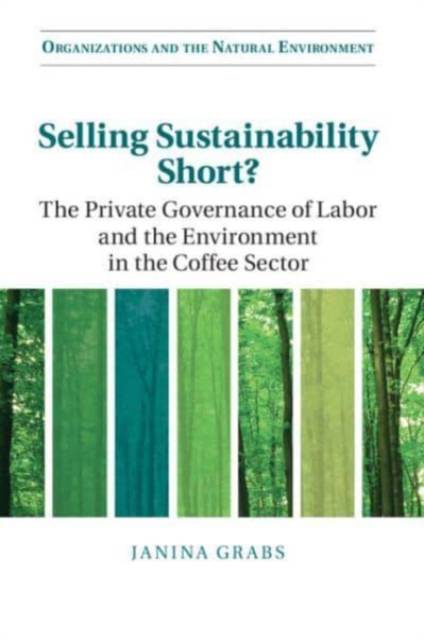
- Afhalen na 1 uur in een winkel met voorraad
- Gratis thuislevering in België vanaf € 30
- Ruim aanbod met 7 miljoen producten
- Afhalen na 1 uur in een winkel met voorraad
- Gratis thuislevering in België vanaf € 30
- Ruim aanbod met 7 miljoen producten
Zoeken
Selling Sustainability Short?
The Private Governance of Labor and the Environment in the Coffee Sector
Janina Grabs
€ 67,95
+ 135 punten
Omschrijving
Can private standards bring about more sustainable production practices? This question is of interest to conscientious consumers, academics studying the effectiveness of private regulation, and corporate social responsibility practitioners alike. Grabs provides an answer by combining an impact evaluation of 1,900 farmers with rich qualitative evidence from the coffee sectors of Honduras, Colombia and Costa Rica. Identifying an institutional design dilemma that private sustainability standards encounter as they scale up, this book shows how this dilemma plays out in the coffee industry. It highlights how the erosion of price premiums and the adaptation to buyers' preferences have curtailed standards' effectiveness in promoting sustainable practices that create economic opportunity costs for farmers, such as agroforestry or agroecology. It also provides a voice for coffee producers and value chain members to explain why the current system is failing in its mission to provide environmental, social, and economic co-benefits, and what changes are necessary to do better.
Specificaties
Betrokkenen
- Auteur(s):
- Uitgeverij:
Inhoud
- Aantal bladzijden:
- 352
- Taal:
- Engels
- Reeks:
Eigenschappen
- Productcode (EAN):
- 9781108799508
- Verschijningsdatum:
- 24/03/2022
- Uitvoering:
- Paperback
- Formaat:
- Trade paperback (VS)
- Afmetingen:
- 152 mm x 229 mm
- Gewicht:
- 471 g

Alleen bij Standaard Boekhandel
+ 135 punten op je klantenkaart van Standaard Boekhandel
Beoordelingen
We publiceren alleen reviews die voldoen aan de voorwaarden voor reviews. Bekijk onze voorwaarden voor reviews.











